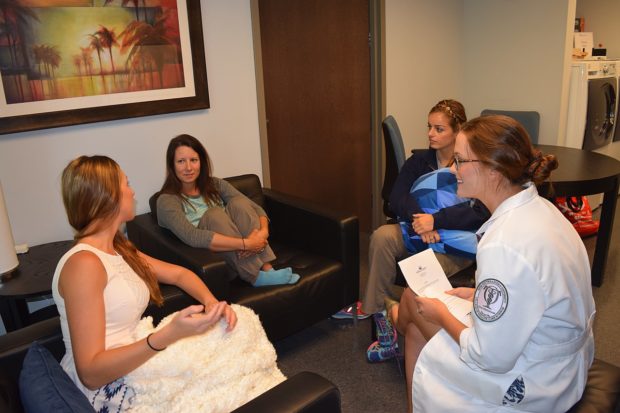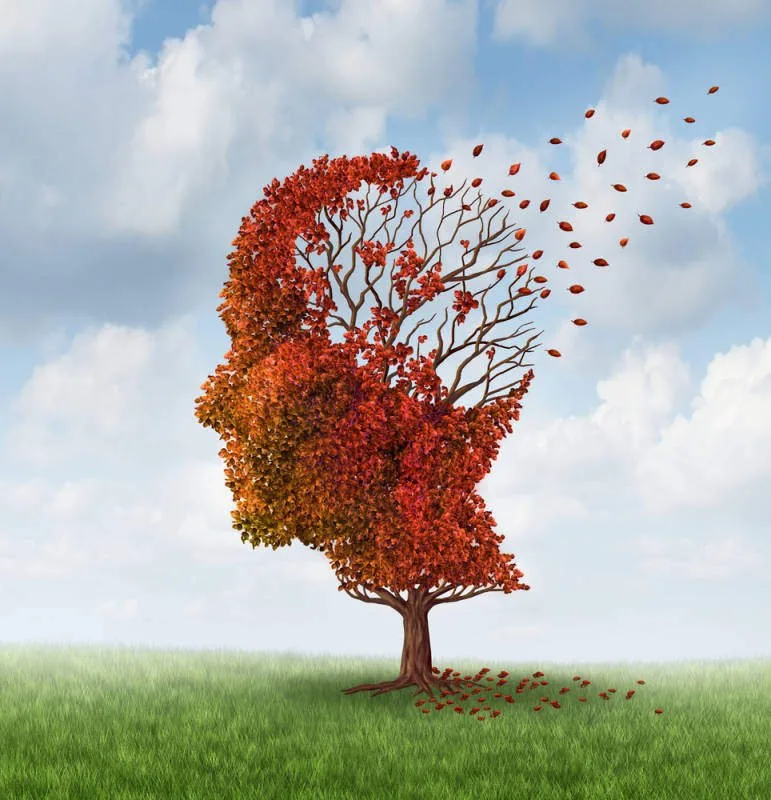Alzheimer’s disease is a type of dementia that affects the brain. It’s the most common form of dementia but doesn’t always cause memory loss. Alzheimer’s can significantly impact the lives of people with it and their caregivers. After being diagnosed with Alzheimer’s, you may need to be extra careful about your daily activities and check-ups with your doctor. Here are some things you can do to improve your quality of life as an Alzheimer’s patient.
Improving Your Quality of Life As An Alzheimer’s Patient
Educate Yourself About the Disease
As per the CDC, nearly 5.8 million Americans aged 65 or above have Alzheimer’s. This number has been increasing at an alarming rate, and it’s expected to continue rising as baby boomers age into this stage of life.
Alzheimer’s disease is a progressive neurological condition impacting up to 50% of people over 85. The illness is caused by abnormal protein deposits in brain cells, causing them to degenerate over time until there are no longer any cells left for memory formation, among other things.
The earlier you learn about your risk factors for developing Alzheimer’s, the better equipped you’ll be to take action against them now rather than later. This could mean all the differences in how long-lived your quality of life will be after diagnosis!
Hire a Geriatric Nurse
Having a professional who has taken a geriatric nurse practitioner course is the best way to start improving the quality of life after an Alzheimer’s diagnosis. A nurse can help with many important aspects of care and treatment, including daily activities, medication management, meal planning, and more. For example:
- Your loved one may need extra assistance bathing or dressing each day. A senior nurse can ensure that your loved one’s skin remains healthy by regularly checking for rashes or dryness.
- If you have concerns about how much medicine your loved one is taking each day or if their dosage has changed, it’s essential to ask questions. Ask questions about what medications are being taken when visiting with medical professionals, such as doctors or pharmacists, so they can ensure proper dosing levels are maintained throughout the treatment process over time.
When choosing a nurse, one must know his or her qualifications. Not all nurses will be able to offer optimal care. Hence, it is advised to select someone who has taken a geriatric course. There are several online geriatric nurse practitioner programs an aspiring nurse practitioner can take. These courses can give them the knowledge, skills, and expertise to offer the best patient care. Hence, you should look for someone who has taken such a course.
Eat a Well-Balanced Diet

artem evdokimov/shutterstock
When you’re eating a well-balanced diet, you are nourishing your body and brain. This can help with the symptoms of Alzheimer’s disease (AD). The following foods may also help:
- Spinach is full of folate, which helps protect against AD and other forms of dementia. Folate also helps protect against heart disease and stroke.
- Walnuts contain omega-3s that may reduce inflammation in the brain and improve memory function. Omega-3 fatty acids have been shown to slow the progression of symptomatic Alzheimer’s disease by as much as 50%.
- Blueberries are rich in antioxidants called anthocyanins, which have been shown to improve memory performance in people with mild cognitive impairment (MCI). MCI refers to loss of memory or thinking skills that aren’t severe enough for a diagnosis of dementia but does interfere with daily activities such as driving or managing money.
Eating blueberries may also help protect against Alzheimer’s disease. A study published in the Neurology journal found that people with MCI who ate more anthocyanins performed better on memory tests than those who ate fewer of these compounds.
Focus on Physical Activity
The good news is that there are plenty of ways to maintain a healthy lifestyle, even if you’re diagnosed with Alzheimer’s. Finding an activity that works for you and your loved one is essential. For example:
- Walking is easy to get started, and can be done anywhere — even around the house! Some people prefer walking in nature or parks, but if it’s easier for your loved one, walking around the neighborhood can be just as beneficial.
- Swimming is another excellent option because water provides resistance to exercise without putting too much stress on joints. Swimming can help improve coordination and mobility, while also helping ease muscle stiffness from osteoarthritis (OA).
- Yoga offers low-impact exercises that do not require a lot of strength or flexibility. The movements focus on breathing control through deep relaxation techniques. These have been shown effective at controlling anxiety levels in people living with dementia.
Keep Your Brain Active
You can significantly improve your quality of life after an Alzheimer’s diagnosis by keeping your brain active. The best way to do this is to keep learning new things. You should also challenge yourself with puzzles, word games, and other activities that require your full attention. For example:
- Play word games like Scrabble or Boggle regularly. They’ll exercise both sides of your brain simultaneously—the rational side, which is in charge of processing language, and the intuitive side, which is in charge of recognizing patterns.
- Read books regularly! Reading stimulates mental activity in several areas. For one, your visual cortex helps create images in our minds while reading. Then there are the language processing centers, executive function centers, visual-spatial memory centers, episodic memory centers, and more.
- If you want to improve your memory, try solving Rubik’s cubes or some other puzzle that requires you to think critically about how the pieces fit together.
Build a Support Network
 A support network can also be helpful when making decisions regarding care and treatment and advising on managing daily activities and finances. If you are looking for someone to talk to about your concerns, consider contacting a local Alzheimer’s Association chapter. You cam also reach out to another organization that provides support services. Specifically for people who have been diagnosed with dementia or are caring for someone who has dementia as a diagnosis.
A support network can also be helpful when making decisions regarding care and treatment and advising on managing daily activities and finances. If you are looking for someone to talk to about your concerns, consider contacting a local Alzheimer’s Association chapter. You cam also reach out to another organization that provides support services. Specifically for people who have been diagnosed with dementia or are caring for someone who has dementia as a diagnosis.
You can also find online forums where people share their experiences dealing with the disease. Being around others who understand what you’re going through may help reduce feelings of isolation and depression. It offers comfort in knowing that others share similar experiences. Having someone else listen and provide advice based on personal experience is essential, so no one feels alone in this journey.
Conclusion
The best way to improve the quality of life after an Alzheimer’s diagnosis is to stay positive. You can’t change what happened, but you can still make your loved one’s time more enjoyable. The more you understand their needs and how aging affects them, the better equipped you’ll be to help them in this difficult time.



![women [longevity live]](https://longevitylive.com/wp-content/uploads/2020/01/photo-of-women-walking-down-the-street-1116984-100x100.jpg)










